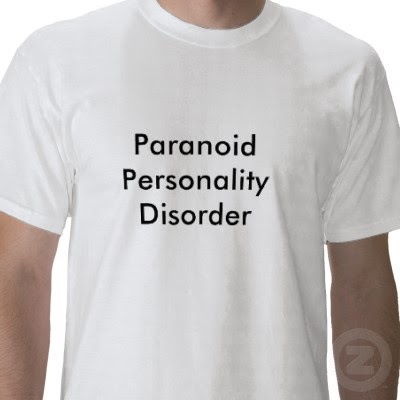

For example a minor accidental collision in a corridor can form the basis of a PPD sufferer believing that the person they collided with hates them and this individual is seeking to harm them. The PPD sufferer generally queries the reasoning behind even the smallest action of another person, these thoughts can frequently become exaggerated, a simple accidental event can quickly take on a sinister meaning to those diagnosed with this disorder. Some sufferers will find their paranoia gets worse when they are stressed and the rest of the time the disorder does not really affect their day to day life, others however find they can not form friendships or relationships and struggle to hold down a job.

As is true of many other mental disorders there is a continuum regarding the severity of the disorder. However, isn't it also true that paranoia is a natural tool that can prevent us from encountering danger? Isn't paranoia part of our instinctive inbuilt survival toolkit which helps prevent us from being harmed? When does a natural instinct to be cautious and enquiring cross over into paranoid personality disorder? What is Paranoid Personality Disorder? PPD is a condition that causes the sufferer to be distrustful and suspicious regarding the actions and motivations of all those around them and leads them to question the motives behind even the smallest interaction between themselves and others.
#PARANOID PERSONALITY DISORDER MANUAL#
PPD (Paranoid Personality Disorder) is diagnosed in those who are considered to have a pervasive, persistent, and enduring mistrust of others, alongside a profoundly cynical view of others and is is a valid diagnosis in the DSM-5 (Diagnostic and Statistical Manual of Mental Disorders, fifth edition- American Psychiatric Disorders).


 0 kommentar(er)
0 kommentar(er)
